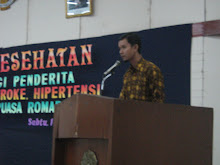Spirituality Medicine
A good physician goes beyond the signs and symptoms of disease but also other factors influencing that disease, including his social and spiritual state. For example, if the diagnosis is cirrhosis of the liver then he must go beyond and find if it is related to alcoholism and if so, what caused the patient to have alcoholism. I have seen both Diabetic Coma and hyperthyroidism precipitated by severe family stress. The physician is best equipped to offer sympathy, comfort and counseling during death, loss and mourning. Such offering by the physician has better effect on the patient’s ability to cope with such loss than any tranquilizer. We must treat our patients like we would like ourselves and our relatives to be treated.
In a recent article published in “The Lancet”, May 10, 2003, Rosenfield et al evaluated spirituality in terminally ill patients. One hundred sixty-eight such patients who were expected to live less than 3 months due to terminal cancer, were selected. The outcome, especially in relation to their understanding of the meaning of life and religion and their behavior toward the illness, was evaluated. According to their conclusions, spirituality as measured by inner peace and meaning of life, helped these terminally ill patients avoid despair, wanting to die or have suicidal tendencies as compared to similar patients without spirituality. Thus, Rosenfield recommended that “health care providers should incorporate psychological and spiritual elements into the palliative care of dying patients.
Hope is also a medicine. Physicians may find that sometimes disbelief leads to despair and hopelessness. By rediscovering a patient’s spirituality, a physician may be able to connect him to God and offer hope as an agent to conventional treatment. This will improve the compliance of the patient in the treatment offered to him. Our duty is to uncover the built in but hidden spirituality within us and our patients. This awareness can be achieved by silent meditation, exploring nature, religious chanting like mantra , zikr or reading sacred scriptures, listening to spiritual music and caring for those in need. Spirituality in music or the healing power of music depends on the music. According to Ghazali, a famous Muslim saint, “the music which increases spirituality and brings one closer to God is good music but the music which dulls the spirituality and diverts from remembrance of God is not so good”.(Shahid Athar, 2008)



